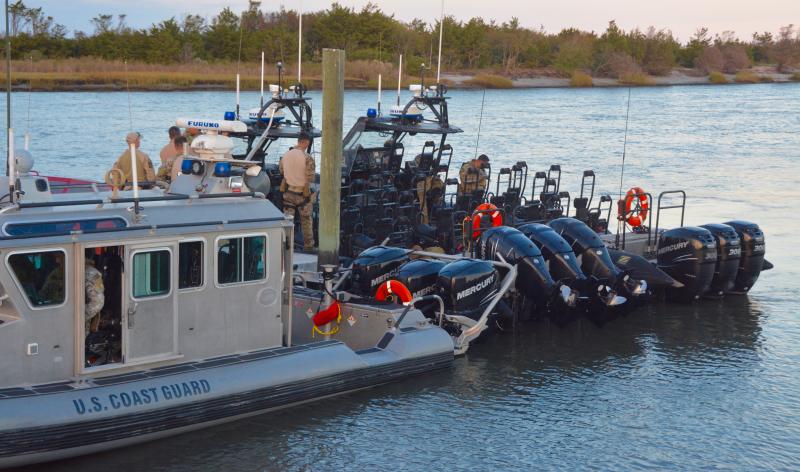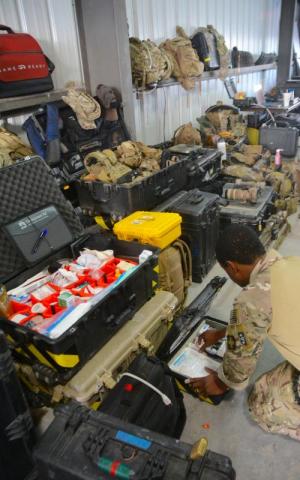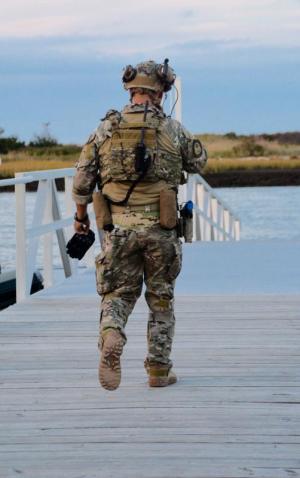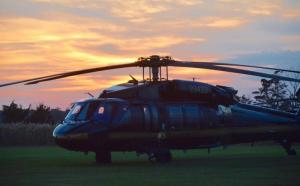When a maritime threat is at the highest level, the U.S. Coast Guard sends in an elite Maritime Security Response Team, a highly trained crew based in Chesapeake, Va.
New unit members conducted a final training exercise this week on the Delaware Bay using the Delaware Department of Natural Resources and Environmental Control building near Roosevelt Inlet as a command center. After the final exercise, team members who passed muster will be assigned to active duty.
“They are the biggest and the baddest,” said Capt. Ben Cooper as he toured the command center before the night of the final assault. Cooper is captain of the port and commander of Sector Delaware Bay in Philadelphia.
The training scenario, Neptune Guardian, required the unit to intercept a ship containing radioactive material, said Lt. Michael Lewis, Coast Guard public affairs officer.
Over several days of the Neptune Guardian exercise, the team overtook small boats loaded with possible radioactive material with assistance from Delaware and New Jersey state police and also neutralized an active shooter on a ship. On the final day, the team used the cover of night to board a ship carrying radioactive material. Two U.S. Customs and Border Protection and two MSRT rib boats were used in the assault. The boats – powered by three, 300 horsepower motors – are capable of doing 45 to 50 knots.
“It is a quick and dynamic situation with the ship moving,” Cooper said.
Using high-tech communications equipment – with aid from a fixed-wing plane flying overhead providing live video feed with infrared capabilities – the command center monitored every aspect of the exercise.
A mock up of the ship was laid out on DNREC's back lot using materials on site so team members could visualize their mission.
The exercise began when the unit was activated Oct. 16. Most of the team and tons of equipment arrived via a C-130 transport plane at Dover Air Force Base.
Team members receive specialized training in counterterrorism skills and tactics as first responders to potential terrorist situations. They are highly trained in assault and close-quarters combat and to board vessels from small boats and helicopters.
The unit has a K-9 component to detect explosives and the team is trained in chemical, biological, radiological and nuclear detection.



































































